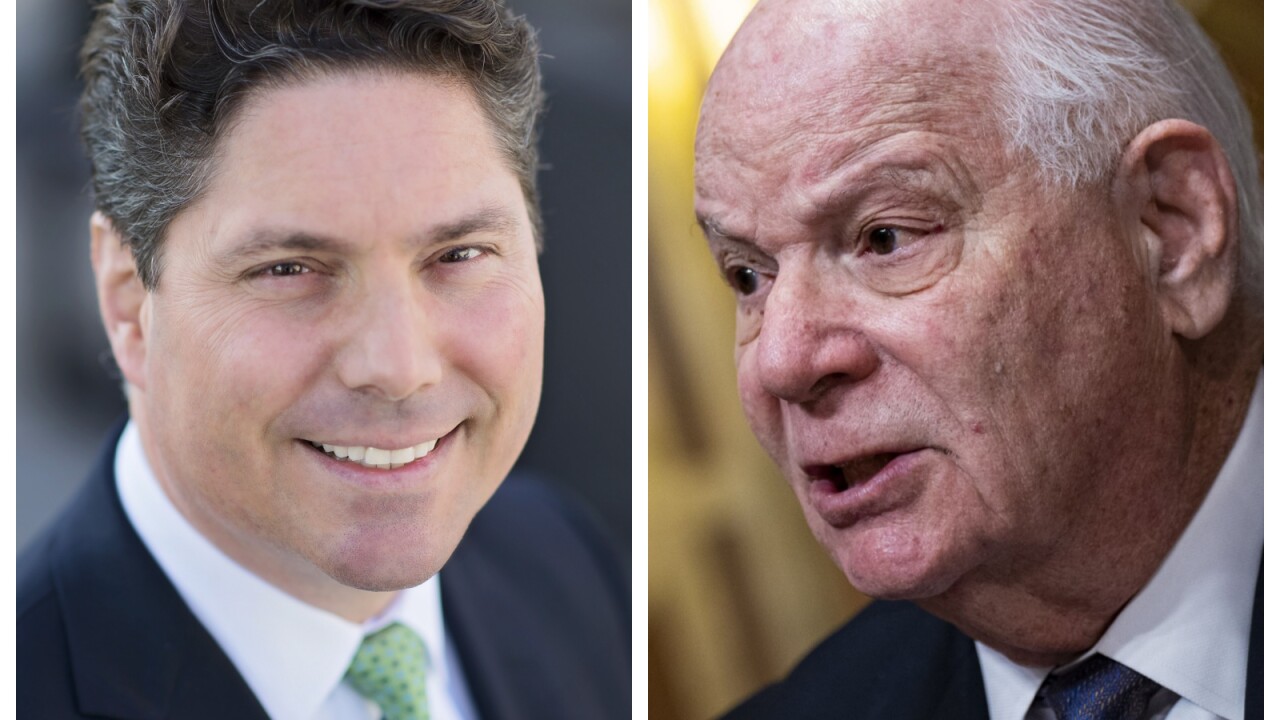-
A handful of banks concentrated in the Southeast U.S. are facing elevated charge-offs amid the liquidation of Mountain Express Oil. First Horizon Corp., which led a syndicated loan of more than $200 million to the bankrupt company, expects to take a $70 million hit.
September 13 -
Lenders either write down portions of soured credits or charge them off altogether to remove them from their balance sheets. Banks also set aside reserves to cover potential future bad loans. This allowance creates a buffer for lenders to absorb losses.
September 13 -
When 55 banks were asked to provide metrics on the health of their commercial real estate borrowers, some of them gave data that was six months old. The survey by Moody's Investors Service also found that certain borrowers are already struggling, and others could hit trouble soon, since they'll need to refinance at high interest rates.
September 7 -
The New York-based company announced the launch of a health care lending unit after capitalizing on recent bank failures to add seven deposit-focused banking groups this spring and summer.
September 6 -
The Canadian bank is deemphasizing American office loans amid rising loss provisions. The decision could lead to decelerating growth in the U.S. market.
September 1 -
The bank attributed the surge to impairments in the U.S. office loan portfolio and appeared to signal that higher provisions from commercial real estate may persist.
August 31 -
Uplinq, which helps lenders make credit decisions for small business owners using alternative data, already has large global banks among its clientele.
August 30 -
A new state regulation brings consumer-style rules to the small business realm, extending California regulators' ability to crack down on nonbank lenders that engage in questionable practices. Observers believe that it could be a model for other states.
August 23 -
Tighter credit standards and lower demand for business loans could make it harder for the Fed to achieve the soft landing it's seeking. Still, bankers are cautiously optimistic, noting that some businesses are using their savings to invest at a time when borrowing costs are high.
August 20 -
Banks are committing financing for a slew of new deals, while investors clamor for syndicated loans as interest rates rise.
August 19 -
Banking and credit union regulators encouraged compassionate treatment of customers in Hawaii communities hit by wildfires. They also vowed to grant expedited approvals of temporary banking facilities, be flexible in compliance matters and provide other support to financial institutions.
August 17 -
JPMorgan Chase, Wells Fargo and TD Auto Finance all see opportunities in providing financing to dealers for inventory, the purchase of competitors and the addition of infrastructure for electric vehicle sales. Two other banks recently said they're exiting the business, which could provide a further opening.
August 15 -
Community bankers anticipate that interest rates could soon level off and the broader economy may avert a downturn as a result. If that forecast proves true, lenders could minimize credit losses and enjoy stronger loan demand than they had expected earlier in the year.
August 15 -
The product, which is both popular and controversial in consumer financial services, is attracting interest from merchants that don't want to pay high interest for a traditional loan.
August 11 -
Moody's said higher funding costs, a potential decline in bank capital and growing risk in the commercial real-estate industry prompted many of the downgrades.
August 8 -
Many small-business lenders have less than 18 months to figure out how to gather and report on an extensive array of data.
August 8Zeta -
Much of the industry is slimming down, with some banks calling it quits on riskier sectors and selling loans they no longer want. The trend is particularly prominent at regional banks that are preparing to comply with new capital rules.
August 6 -
Critics complain a bill sponsored by the leaders of the Senate Small Business Committee would reinstate a moratorium on participation in the SBA's flagship 7(a) program by nondepository lenders. Supporters of the bill argue that widening the program could invite more fraud.
August 3 -
The Federal Reserve said that banks reported tighter standards and continued weak demand for loans in the second quarter, extending a trend that began before recent stresses in the banking sector emerged.
July 31 -
A federal judge has temporarily stopped the Consumer Financial Protection Bureau from implementing its small-business data collection rule until after the Supreme Court rules next year on whether the bureau's funding is constitutional.
July 31



















